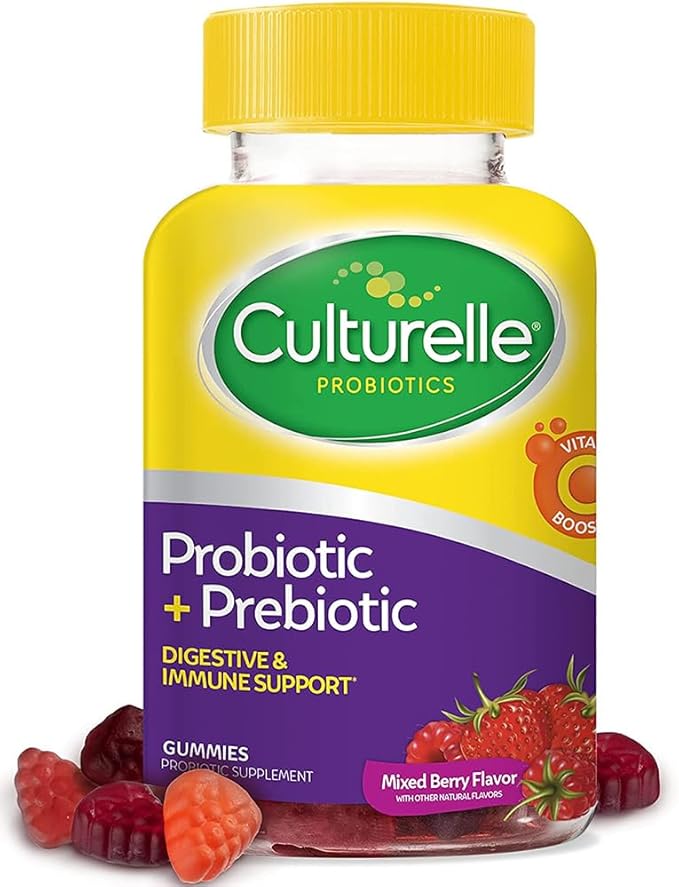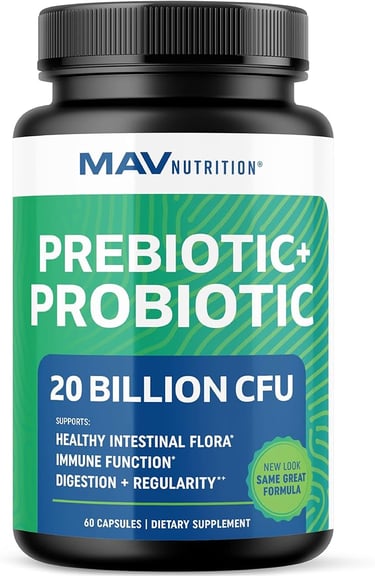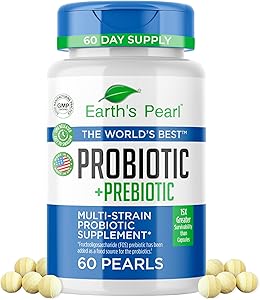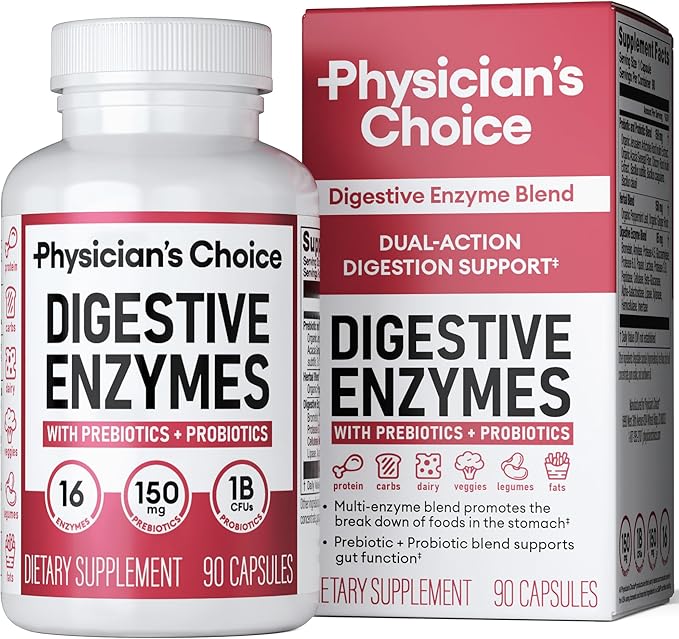Prebiotics & Probiotics: The Gut Health Secret for a Stronger Body and Mind!
Check out our video down below!
WELLNESS
Bridget M
3/1/20255 min read


The Power of Prebiotics and Probiotics: How They Benefit Your Health
In the world of health and wellness, gut health has become a major focus, and for good reason. A healthy gut is the foundation of overall well-being, influencing digestion, immunity, mood, and more. Two key players in maintaining gut health are prebiotics and probiotics. While they sound similar, they serve different yet complementary roles in supporting a balanced digestive system. Understanding their benefits can help you make informed dietary choices to improve your health.
What Are Prebiotics and Probiotics?
Prebiotics are a type of fiber that serves as food for the beneficial bacteria in your gut. They help these good bacteria thrive, ensuring a well-balanced gut microbiome. Common sources of prebiotics include garlic, onions, bananas, asparagus, and whole grains.
Probiotics, on the other hand, are live bacteria and yeasts that offer health benefits when consumed in adequate amounts. These beneficial microorganisms help replenish and maintain the right balance of bacteria in your digestive tract. Probiotic-rich foods include yogurt, kefir, sauerkraut, kimchi, miso, and kombucha.
When prebiotics and probiotics work together, they create a synergistic effect that enhances gut health and overall wellness.
The Health Benefits of Prebiotics and Probiotics
1. Improved Digestion
One of the most well-known benefits of probiotics is their ability to support digestion. They help maintain a balanced gut microbiome, preventing digestive issues such as bloating, gas, diarrhea, and constipation. Probiotics aid in breaking down food and absorbing nutrients, while prebiotics act as fuel for these beneficial bacteria, ensuring their survival and effectiveness.
2. Strengthened Immune System
A large portion of your immune system resides in your gut, and the bacteria living there play a crucial role in protecting you from harmful pathogens. Probiotics enhance immune function by preventing bad bacteria from overgrowing, while prebiotics help sustain the good bacteria needed for a strong immune response. Studies suggest that regular consumption of probiotics can reduce the risk of infections and shorten the duration of colds and flu.
3. Enhanced Mental Health and Mood
The gut and brain are closely connected through the gut-brain axis. The bacteria in your gut influence neurotransmitter production, including serotonin, which impacts mood and emotional well-being. An imbalance in gut bacteria can contribute to stress, anxiety, and depression. Certain probiotic strains, such as Lactobacillus and Bifidobacterium, have been shown to help alleviate symptoms of anxiety and depression. Prebiotics, by fostering the growth of beneficial bacteria, also contribute to a stable and positive mood.
4. Support for Weight Management
Gut bacteria play a role in how your body stores fat, regulates appetite, and absorbs nutrients. Some probiotic strains have been linked to weight loss by reducing fat storage and improving metabolism. Prebiotics help control hunger hormones and reduce cravings, making it easier to maintain a healthy weight. A balanced gut microbiome promotes efficient digestion and metabolism, which supports long-term weight management.
5. Better Heart Health
Prebiotics and probiotics contribute to heart health by lowering cholesterol levels and regulating blood pressure. Some probiotic strains help break down bile in the gut, preventing it from being reabsorbed into the bloodstream as cholesterol. Prebiotics promote the production of short-chain fatty acids, which help control inflammation and blood sugar levels, reducing the risk of cardiovascular diseases.
6. Reduced Inflammation
Chronic inflammation is linked to various health problems, including autoimmune diseases, arthritis, and even certain cancers. A healthy gut microbiome helps regulate inflammation by balancing the body’s immune responses. Probiotics help reduce the production of inflammatory compounds, while prebiotics support this process by nourishing beneficial bacteria that keep inflammation under control.
7. Relief from Digestive Disorders
People suffering from irritable bowel syndrome (IBS) or other digestive disorders can benefit from prebiotics and probiotics. IBS causes symptoms such as stomach pain, bloating, diarrhea, and constipation, which probiotics can help alleviate by improving gut function. Prebiotics also aid in digestion and reduce intestinal irritation, making them a valuable tool for managing digestive conditions.
8. Improved Skin Health
Skin conditions such as acne, eczema, and rosacea have been linked to gut health. When gut bacteria are imbalanced, inflammation can trigger skin issues. Probiotics reduce inflammation and promote a healthy gut environment, which can lead to clearer skin. Some studies have shown that probiotics may help reduce acne breakouts and improve skin hydration. Prebiotics further support skin health by feeding the good bacteria that contribute to the skin’s natural defense mechanisms.
9. Stronger Bones
Prebiotics and probiotics can also play a role in bone health. Certain probiotics help enhance calcium absorption, which is essential for strong bones and the prevention of osteoporosis. Prebiotics improve the availability of minerals like magnesium and phosphorus, which are also vital for maintaining bone strength. By supporting gut health, these nutrients contribute to overall skeletal health.
10. Increased Energy Levels
A well-balanced gut microbiome aids in nutrient absorption, ensuring that your body gets the energy it needs to function optimally. Probiotics help break down food more efficiently, while prebiotics support their growth and effectiveness. A healthy gut can reduce fatigue, improve focus, and provide a steady source of energy throughout the day.
How to Incorporate Prebiotics and Probiotics into Your Diet
To maximize the benefits of prebiotics and probiotics, it’s important to consume a variety of gut-friendly foods. Some excellent probiotic sources include yogurt, kefir, sauerkraut, kimchi, miso, and kombucha. Prebiotic-rich foods include bananas, garlic, onions, leeks, asparagus, and whole grains.
If you’re not getting enough from your diet, you may consider taking supplements. However, it’s always best to consult a healthcare professional before starting any new supplements to ensure they are right for you.
Final Thoughts
Prebiotics and probiotics are essential for maintaining a healthy gut and overall well-being. From improving digestion and boosting immunity to supporting mental health and weight management, these powerful nutrients offer a wide range of health benefits. By incorporating more prebiotic and probiotic-rich foods into your daily routine, you can support your gut microbiome and enjoy better overall health.









